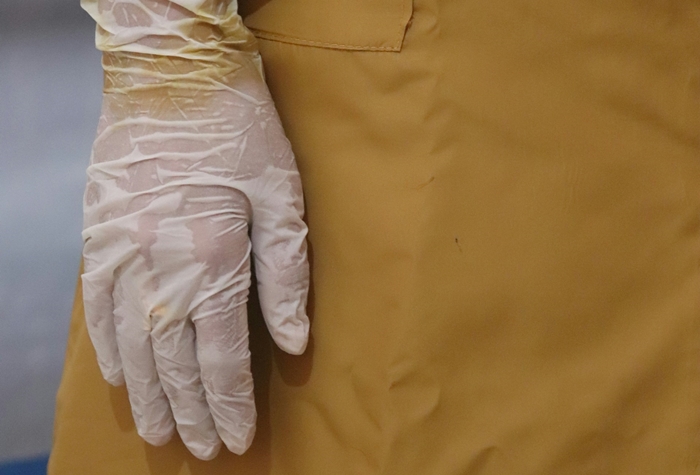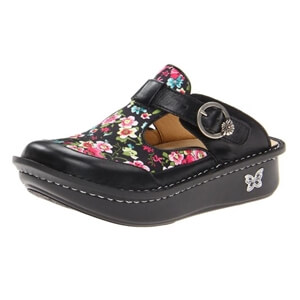
The Vital Role of Empathy in Nursing
Empathy is the heartbeat of compassionate nursing, forming a bridge that connects healthcare professionals to their patients on a deeply human level.
Beyond the clinical expertise and technical skills, empathy is the intangible force that has the potential to transform healthcare experiences and improve patient outcomes.
Understanding Empathy in Healthcare
In the context of healthcare, empathy involves understanding and sharing the feelings of patients. It goes beyond sympathy, transcending into a profound connection that allows nurses to comprehend the emotional and physical challenges faced by those under their care. It’s about standing in the patient’s shoes and offering genuine support.
The Benefits of Empathetic Nursing
Empathetic nursing brings a multitude of benefits. It enhances the therapeutic relationship between healthcare professionals and patients, fostering trust and open communication.

Patients who feel heard and understood are more likely to adhere to treatment plans, report symptoms accurately, and experience an overall improvement in their mental and emotional well-being.
Challenges and Barriers to Empathy
While empathy is a cornerstone of nursing, various challenges and barriers can impede its expression. Heavy workloads, time constraints, and the emotional toll of dealing with difficult cases can make it challenging for nurses to fully engage in empathetic practices.
Overcoming these barriers requires a conscious effort to prioritize empathetic care in the midst of a demanding healthcare environment.
Nurturing Empathy in Nursing
Nurturing empathy in nursing involves a multifaceted approach. It begins with education, instilling the importance of empathy in the training of healthcare professionals.

Creating a supportive workplace culture that recognizes and values empathetic practices is equally vital. Continuous professional development and mentorship programs can further enhance the empathetic skills of nursing professionals.
The Impact of Empathy on Patient Outcomes
The impact of empathy on patient outcomes is profound. Studies have shown that patients who receive empathetic care often experience reduced anxiety, improved pain management, and a faster recovery process.
The emotional support provided through empathetic nursing contributes to a positive patient experience, influencing overall well-being and satisfaction.
Compassion as a Cornerstone of Nursing
Compassion, stemming from empathy, is a cornerstone of nursing. It involves not only understanding the patient’s perspective but actively participating in their healing journey.
Compassionate nursing transcends medical procedures; it involves kindness, attentiveness, and a genuine commitment to alleviating suffering, creating an environment where patients feel cared for in both body and spirit.
Final Thoughts
In conclusion, the power of compassion in nursing lies in the ability to cultivate and express empathy. The impact of empathetic nursing goes beyond the immediate emotional connection; it ripples through the entire healthcare experience, influencing patient outcomes and fostering a sense of trust and partnership.
In a profession where healing is not only physical but also emotional, the significance of empathetic nursing cannot be overstated.
FAQs:
Why is empathy essential in nursing?
Empathy is essential in nursing because it forms the foundation of a compassionate and therapeutic relationship between healthcare professionals and patients. It fosters trust, improves communication, and contributes to positive patient outcomes.
How can nurses maintain empathy amidst a busy and stressful environment?
Maintaining empathy in a busy and stressful environment requires conscious efforts such as self-awareness, regular self-reflection, and the establishment of a supportive workplace culture. Time management strategies and stress-reduction techniques can also contribute to sustaining empathy in nursing practice.
Can empathy in nursing really lead to faster patient recovery?
Yes, empathy in nursing has been associated with faster patient recovery. Patients who receive empathetic care often experience reduced anxiety, improved pain management, and a more positive overall healthcare experience, contributing to a faster recovery process.
What is the difference between empathy and sympathy in healthcare?
Empathy involves understanding and sharing the feelings of others, while sympathy is feeling sorrow or pity for someone’s misfortune. In healthcare, empathy is more beneficial as it creates a deeper connection and understanding between healthcare professionals and patients.
Is empathy only about emotional support, or does it have practical benefits in healthcare?
While empathy certainly involves emotional support, it also has practical benefits in healthcare. Patients who feel understood and supported are more likely to adhere to treatment plans, communicate openly about their symptoms, and experience overall improved well-being. The practical impact of empathy extends to positive patient outcomes and satisfaction.
You may also like
Guides For Nurses
Does nursing have math?
In this article, we’re diving into a common question that often arises among aspiring and…
Why Do Nurses Wear Crocs?
Whether you’re been a nurse for several years, or you’re studying to be a nurse,…
The Diversity and Inclusion Imperative in Nursing: Building a More Representative Workforce
Importance of Diversity and Inclusion in Nursing Diversity and inclusion are not merely concepts; they…
Nursing Ethics: Navigating Complex Moral Dilemmas in Healthcare
The Crucial Role of Nursing Ethics Nursing ethics forms the moral compass that guides nurses…
Alegria Classic Clog for Women Review
This is the clog that started everything. The Alegria Classic Clog for Women is available…






